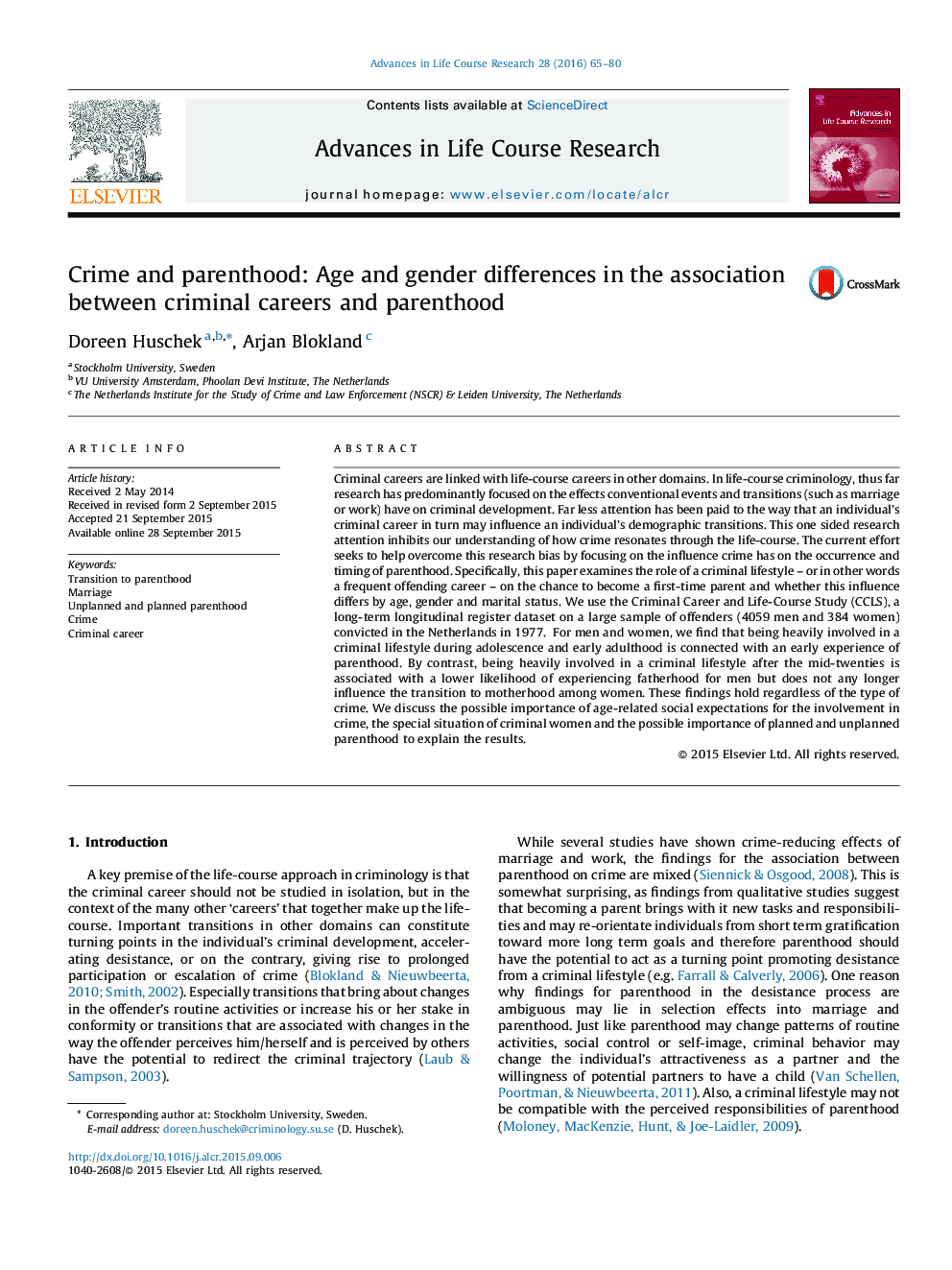| Article ID | Journal | Published Year | Pages | File Type |
|---|---|---|---|---|
| 313204 | Advances in Life Course Research | 2016 | 16 Pages |
Criminal careers are linked with life-course careers in other domains. In life-course criminology, thus far research has predominantly focused on the effects conventional events and transitions (such as marriage or work) have on criminal development. Far less attention has been paid to the way that an individual's criminal career in turn may influence an individual's demographic transitions. This one sided research attention inhibits our understanding of how crime resonates through the life-course. The current effort seeks to help overcome this research bias by focusing on the influence crime has on the occurrence and timing of parenthood. Specifically, this paper examines the role of a criminal lifestyle – or in other words a frequent offending career – on the chance to become a first-time parent and whether this influence differs by age, gender and marital status. We use the Criminal Career and Life-Course Study (CCLS), a long-term longitudinal register dataset on a large sample of offenders (4059 men and 384 women) convicted in the Netherlands in 1977. For men and women, we find that being heavily involved in a criminal lifestyle during adolescence and early adulthood is connected with an early experience of parenthood. By contrast, being heavily involved in a criminal lifestyle after the mid-twenties is associated with a lower likelihood of experiencing fatherhood for men but does not any longer influence the transition to motherhood among women. These findings hold regardless of the type of crime. We discuss the possible importance of age-related social expectations for the involvement in crime, the special situation of criminal women and the possible importance of planned and unplanned parenthood to explain the results.
